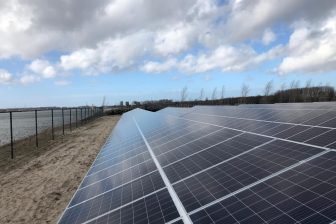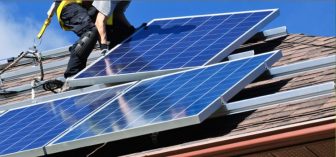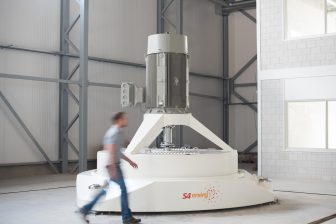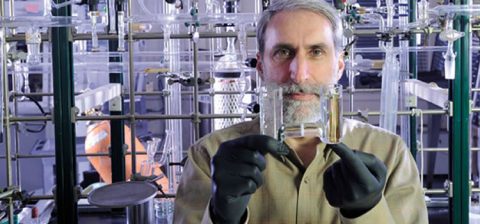
Gemodificeerde bacterie ‘eet’ CO2 en maakt energie
31 mei 2016 – Het Amerikaanse blad Forbes meldt dat de Britse hoogleraar Daniel G. Nocera erin is geslaagd bacteriën genetisch zo te veranderen dat zij CO2 kunnen opnemen en omzetten in alcohol die weer verbrand kan worden. Maar, waarschuwt hij, ‘dit gaat niet het CO2-probleem oplossen’.
Daniel Nocera zal binnenkort in Science over zijn experimenten publiceren, maar Forbes doet nu al verslag van een lezing van Nocera aan de universiteit van Chicago over de uitkomsten van zijn onderzoek.
Toen Nocera met zijn onderzoek begon ontmoette hij veel scepsis. Menig wetenschapper veronderstelde dat het heel moeilijk zou worden bacteriën een betere opname van CO2 te laten realiseren dan planten. Nocera claimt dat ‘zijn’ bacteriën nu al tien keer zo efficiënt zijn.
Eerder al ontwikkelde Nocera een ‘kunstmatig blad’ dat, net als planten, zonlicht (en water) kan omzetten in waterstof. Dit zorgde niet voor een doorbraak, omdat de wereld volgens Nocera ‘nog niet klaar is voor waterstof als brandstof’.
Daarom verlegde Nocera zijn aandacht naar bacteriën.
Uit het bericht van Forbes
‘(…)over the last 18 months, Nocera worked with biologists from Harvard Medical School to engineer a bacteria called Ralston eutropha to consume hydrogen and CO2 and convert them into adenosine triphosphate (ATP), the energy molecule used by natural organisms. Building on discoveries made earlier by Anthony Sinskey, a professor of microbiology at MIT, they inserted more genes to convert the ATP into alcohol and cause the bacteria to excrete it. (…) “Right now we’re making isopropanol, isobutanol, isopentanol,” he said in a lecture to the Energy Policy Institute at Chicago. “These are all alcohols you can burn directly. And it’s coming from hydrogen from split water, and it’s breathing in CO2. That’s what this bug’s doing.” (…) “This isn’t solving your CO2 problem,” he said. ”I’m taking CO2 out of the air, you burn it and you put the CO2 back. So it’s carbon neutral. I’m not going to reverse 400 ppm of CO2. But you’re not going to use any more stuff out of the ground.” (…)’
Nocera Lab, Harvard University
Daniel G. Nocera is verbonden aan Harvard University, is daar hoogleraar Energie en geeft er leiding aan het ‘Nocera Lab’ (’the chemistry of renewable energy’). ‘The Nocera lab studies the basic mechanisms of energy conversion in biology and chemistry. We synthesize a variety of compounds and materials, ranging from organic supramolecular assemblies to inorganic coordination, organometallic, and extended layered compounds to biomolecules that permit us to investigate physical and chemical issues of pertinence to energy conversion. Expertise in a host of steady-state (absorption, emission, Raman) and time-resolved (nanosecond, picosecond, femtosecond) laser spectroscopies and other physical methods permits us to define critical phenomena, which in turn guide us in the further design of new systems with targeted reactivity.’
De bacterie Ralstonia Eutropha (afbeelding Wikipedia)
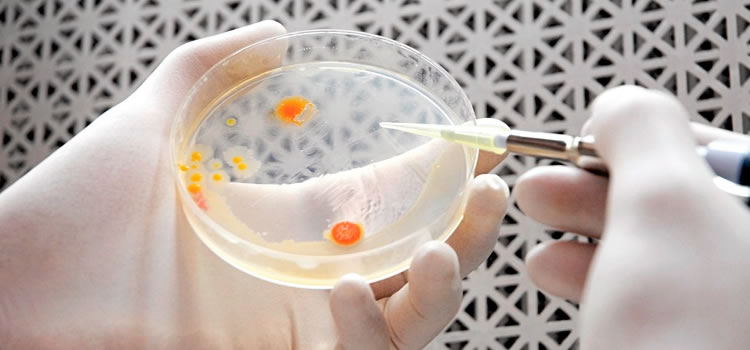
Bronnen
Forbes, 29 mei 2016: Harvard Scientist Engineers Bacterium That Inhales CO2, Produces Energy
Harvard University, Research Group of Daniel G. Nocera
Foto: Daniel G. Nocera (foto Harvard University, HavardGazette, courtesy of Daniel G. Nocera)

